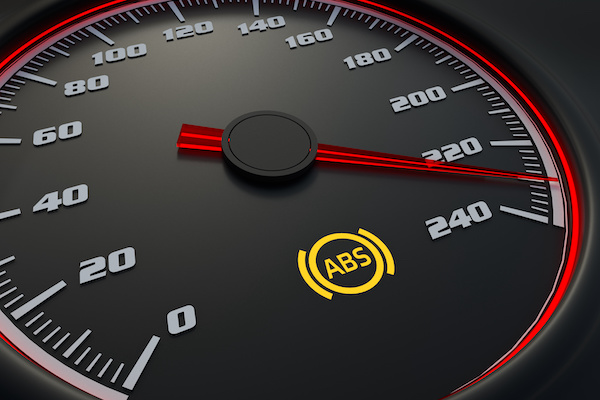Your vehicle’s ABS light coming on might indicate a problem with one or more anti-lock braking components. Brake fluid running low, blown or damaged fuse, or irregular signals from wheel sensors are all possible causes.
The ABS Indicator: What Does it Mean?
A car’s ABS system monitors the rotational speed of each wheel using sensors. To ensure that the car is steady and under control, signals from all 4 wheels are monitored by a computer as well as the location of the brake pedal.
The ABS light comes on if the computer detects any unusual signals or an absence of signal from the sensors, alerting the driver there’s a problem. But there are other reasons the computer turns on the ABS, including low braking fluid or a damaged fuse, in addition to tracking the wheel speed sensors. Other vehicle’s ABS systems flash the light several times before turning it on permanently.
When The ABS Light Comes On, What Should You Do?
When your car’s ABS light comes on, find a safe spot to stop, turn off the car, then restart it. The computer will then verify all the sensors for anomalies. A simple reset, similar to your home, personal computer, may resolve the issue and the ABS light will turn off.
However, it’s not always that easy. In some cases, there may be a failure in the system that has to be discovered. The wisest thing to do is to have a professional technician here at our shop connect a scan tool to the vehicle and check for any fault codes.
Is It Safe To Drive Your Car When The ABS Light Comes On?
Even though the ABS indicator is on, the car may still be safe to drive. You will still be able to brake normally unless there are brake lights on in addition to the ABS indicator. However, the vehicle will be unable to assist you if you start to skid, so drive carefully. It is best to bring your vehicle into our shop as soon as you can to check out the problem.
If you need ABS warning light diagnostics, bring your vehicle to Fast Lane European today!
 Mon – Fri: 8:30 AM – 5:30 PM
Mon – Fri: 8:30 AM – 5:30 PM 3585 Stevens Creek Blvd, San Jose, CA 95117
3585 Stevens Creek Blvd, San Jose, CA 95117 (408) 985-2000
(408) 985-2000 (408) 985-1000
(408) 985-1000





 Make An Appointment
Make An Appointment